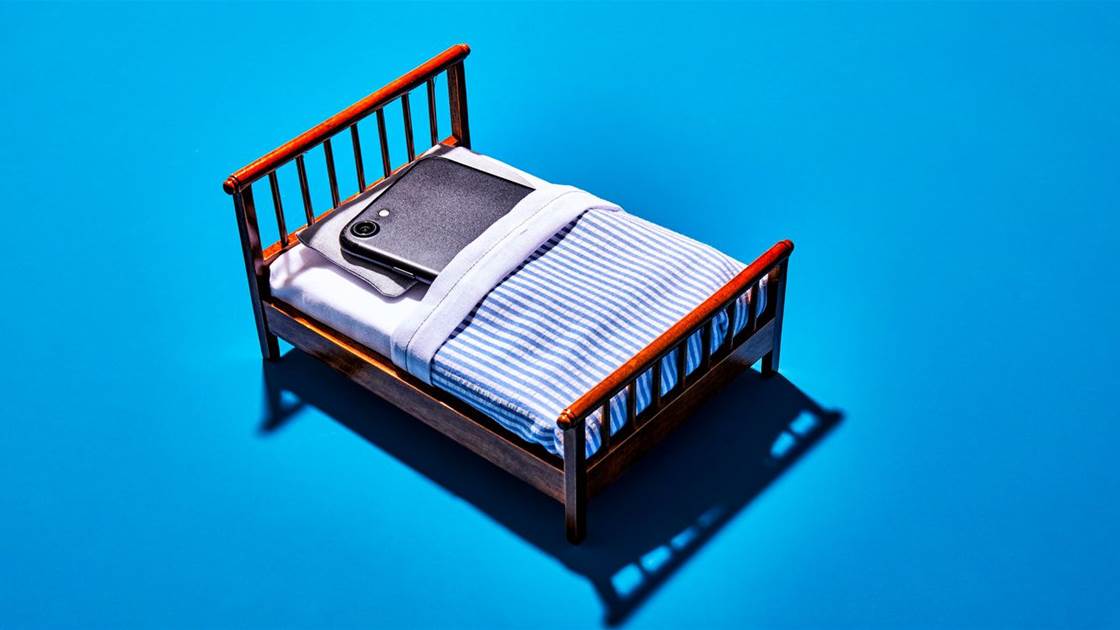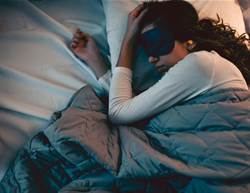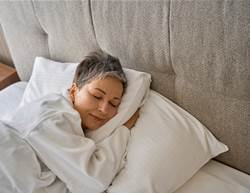To sleep track or not to sleep track? That is the question for many sleepers who are interested in knowing what happens while they’re conked out. But what exactly is your device or app tracking, and what do you do with its insights once you have them?
How do sleep trackers work?
In simple terms, sleep tracking actively monitors sleep patterns and sleep quality throughout the night. There are countless sleep-tracking devices, and their capabilities can differ slightly, but most log things such as duration of sleep, time spent in bed, how long you’re in various sleep stages, sleep quality, and other factors such as movement, snoring and nighttime awakenings.
Are sleep trackers accurate?
What’s still up in the air is how accurate sleep trackers are. They’re not so precise when it comes to pinpointing time spent in specific sleep stages (such as REM, the stage in which you dream), but they’re generally good at estimating total sleep duration and assessing patterns such as how often you awaken during the night.
Tracking sleep patterns can be useful in helping you figure out where you need to clean up your sleep hygiene to snooze more soundly for better overall health and well-being. For instance, if you notice that you seem to be roused repeatedly throughout the night, you might try sleeping with white noise or a fan to help muffle environmental sounds that could be interrupting your slumber. Or if your sleep app picks up on frequent snoring, your doctor may suggest that you get screened for sleep apnoea.
Is sleep tracking right for everyone?
Sleep tracking has the potential to do more harm than good for certain people. Some may experience anxiety and stress over “negative” results, which could lead to a type of insomnia called orthosomnia that is characterised by obsession over sleep issues; others may ignore signs that they’re not getting enough good-quality sleep if a less-than-accurate tracking device says everything is golden.
That’s why it’s best to talk with your doctor or a sleep specialist before embarking on a sleep-tracking journey. They can help you choose the sleep tracker that might work best for your sleep needs and then work with you to interpret and use its insights to improve your sleep.
Types of sleep trackers
Here’s what’s out there and how well they work.
Smartphone apps: Sleep-tracking apps are convenient and plentiful but less accurate than wearable devices. Many detect noises, making them an option if you want to record snoring or sleep-talking.
Wristbands and smart watches: Relatively comfortable and generally accurate in estimating total sleep along with measurements such as blood pressure and heart rate.
Rings: These trackers tend to be comfortable and track total sleep duration accurately.
Sleep mats: Bed-based trackers are the least common type, but they can detect motion accurately during sleep.
Headbands: These are on the rise despite not being the most practical. Sensors measure brain activity to track sleep duration and time spent in sleep stages. Some offer meditations paired with your biometric data as an avenue toward relaxation and better sleep.
Want to sleep better? Read what researchers learned in groundbreaking research for Australia's Sleep Revolution with Dr Michael Mosley.



.jpg&h=90&w=90&c=1&s=1)






